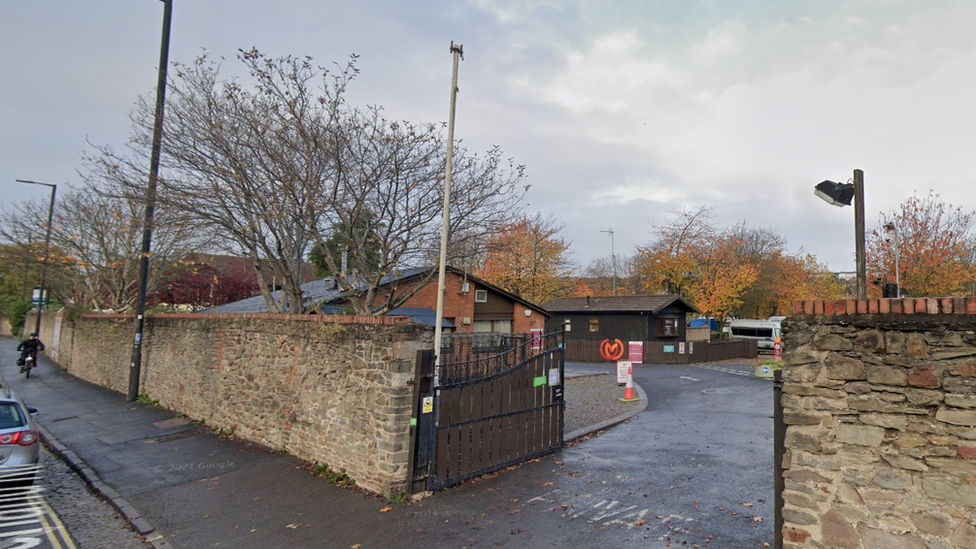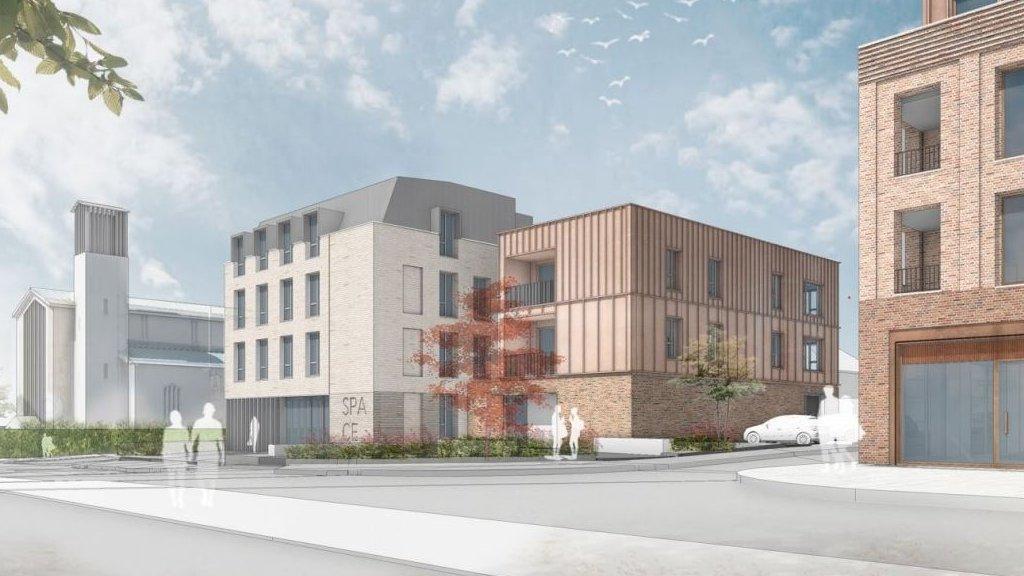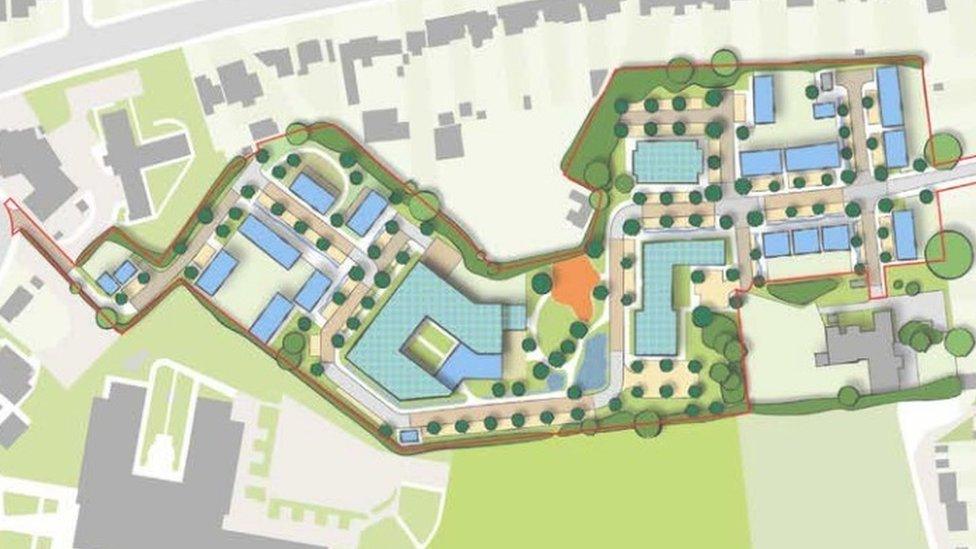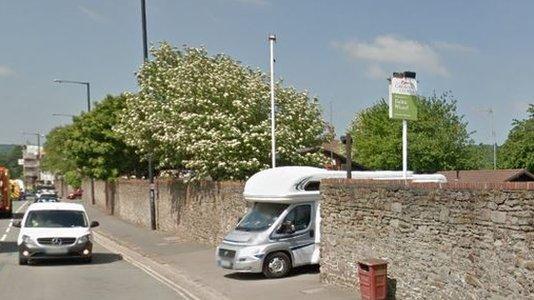Plans for Bristol homes on caravan park pose flood risk
- Published

The planned 166 apartments would be spread over six blocks, from four to six storeys tall
Flooding fears could scupper plans to build 166 apartments on the site of a caravan park.
A developer is planning to build the flats on the site of the Baltic Wharf Caravan and Motorhome Club, next to the Cottage Inn pub in Bristol.
However, the Environment Agency has warned the development could increase the risk of flooding.
Developers Goram said a similar scheme at St Phillip's Marsh, also at risk of flooding, eventually went ahead.
Plans to develop the site stretch back decades but this application was put forward by Bristol City Council-owned developer Goram Homes and house-builder Hill.
The apartments would be spread over six blocks, from four to six storeys tall.
The Environment Agency warned the council the plan would pose "a significant hazard" as the site has a high probability of flooding and proposed mitigation measures were inadequate.
Writing to the council last November, Mark Willitts, planning specialist at the Environment Agency, said: "The developer's updated flood risk assessment fails to demonstrate that the development is safe for its lifetime without increasing flood risk elsewhere.
"We note the proposal includes lowering existing ground levels to incorporate a lower ground floor.
"This will significantly increase the level of flood hazard posed in these areas, and is not acceptable."
Legal advice sought by Goram compared the development to similar ones at St Phillip's Marsh, for hundreds of new apartments and a high school in an area also at risk of flooding.
The Environment Agency also objected to plans to build there, but the project eventually went ahead anyway.
Residents have also objected to the part of the proposals relating to the chopping down of 82 of the 101 trees in the area.
Writing to the council, one resident said: "Architectural and landscaping plans should at least incorporate the trees in the plan, not fell them.
"It's backwards to apply a green air tax for the central areas of Bristol and then actively destroy trees."
The developers said they would plant 65 new trees on site and 10 nearby and pay the council for 152 new trees to be planted elsewhere.

Follow BBC West on Facebook, external, Twitter, external and Instagram, external. Send your story ideas to: bristol@bbc.co.uk , external
- Published21 January 2023

- Published5 December 2022

- Published10 November 2016
